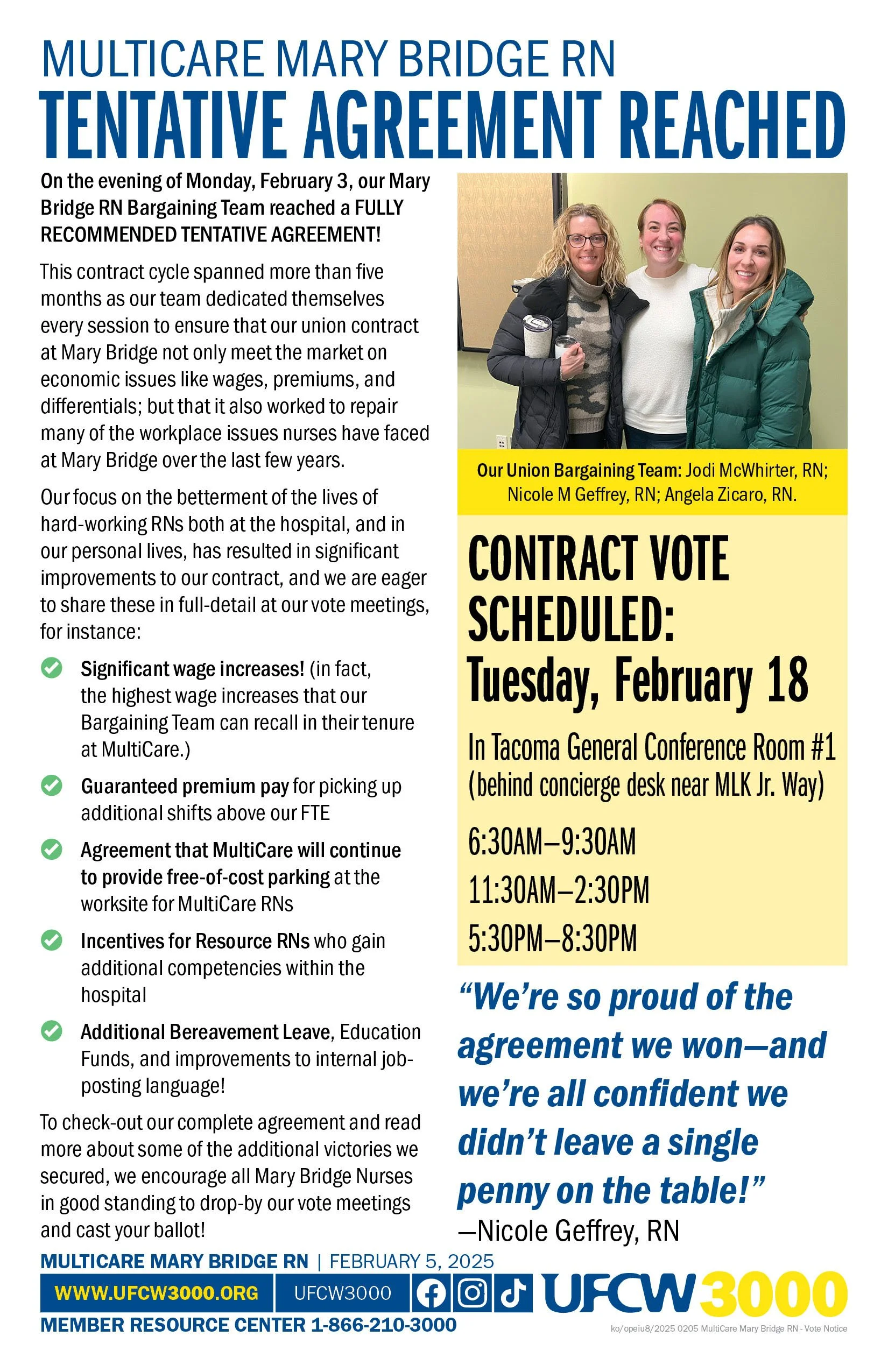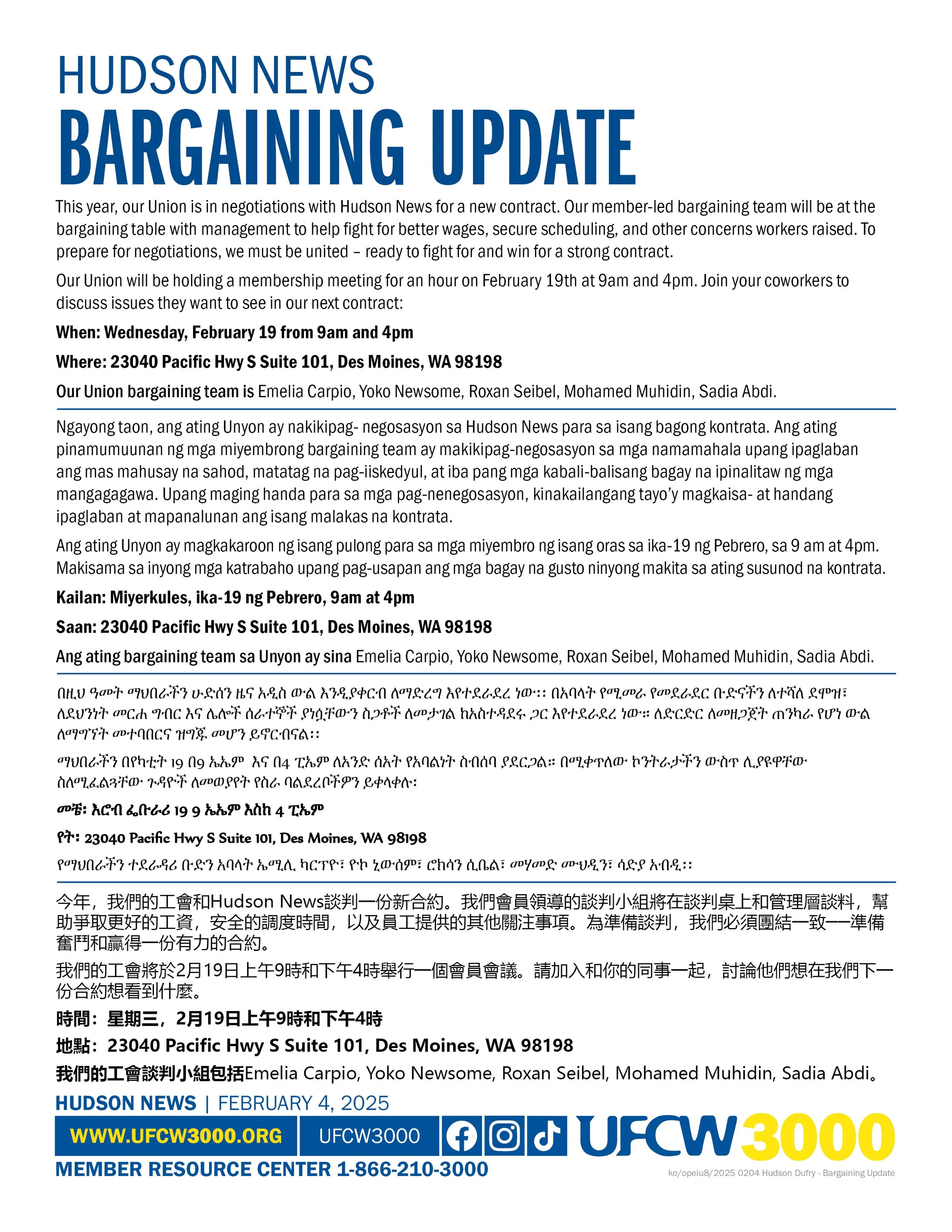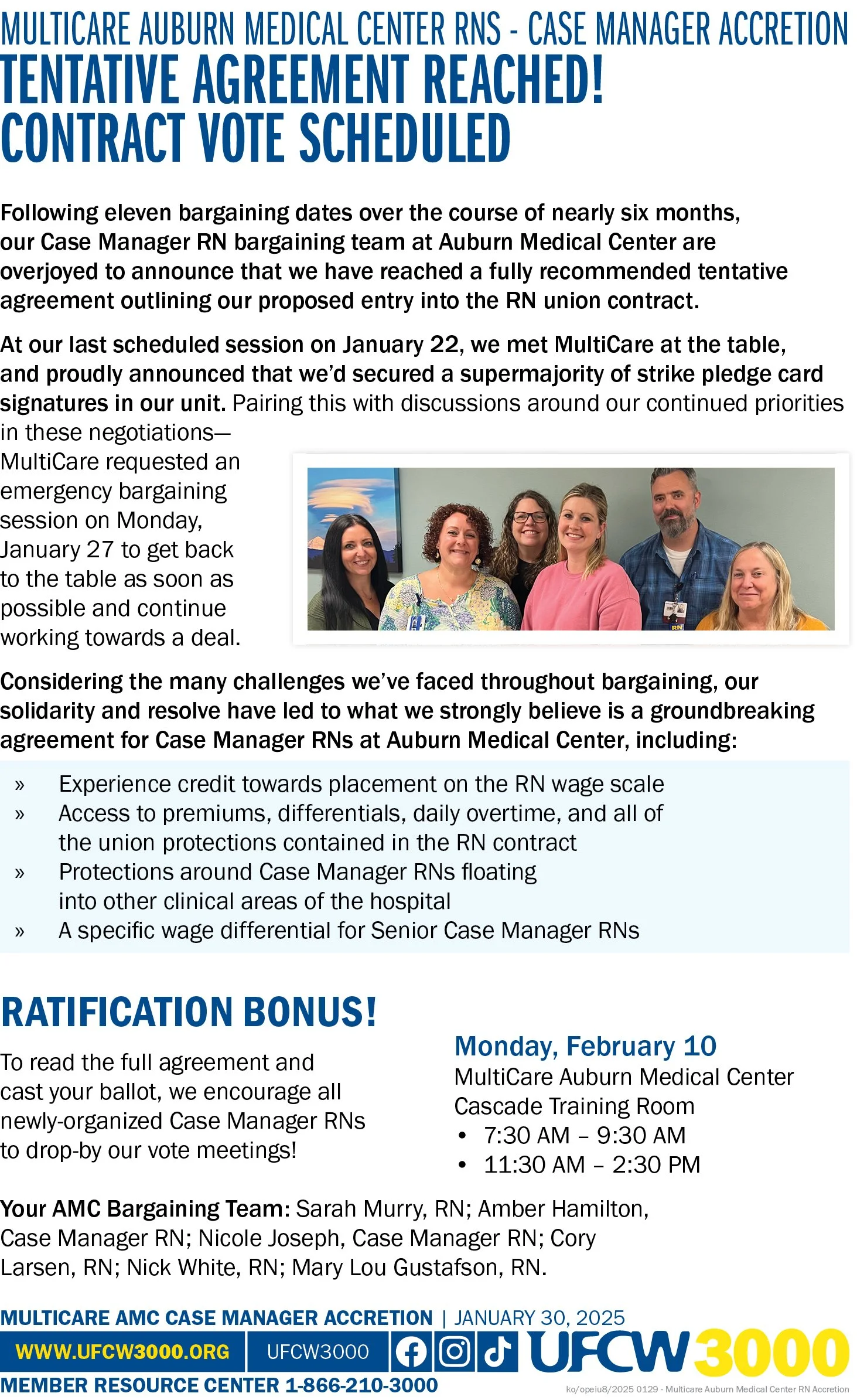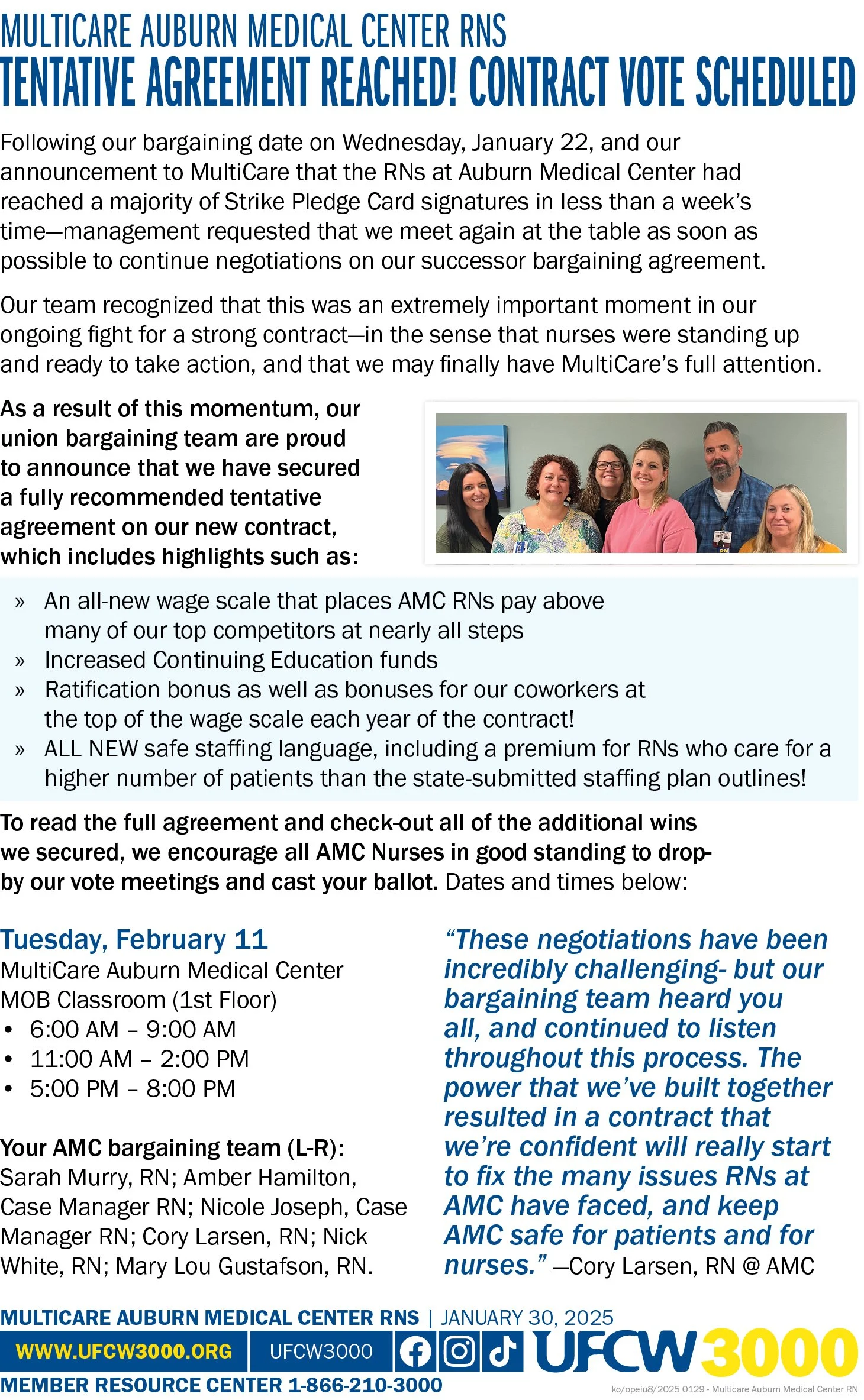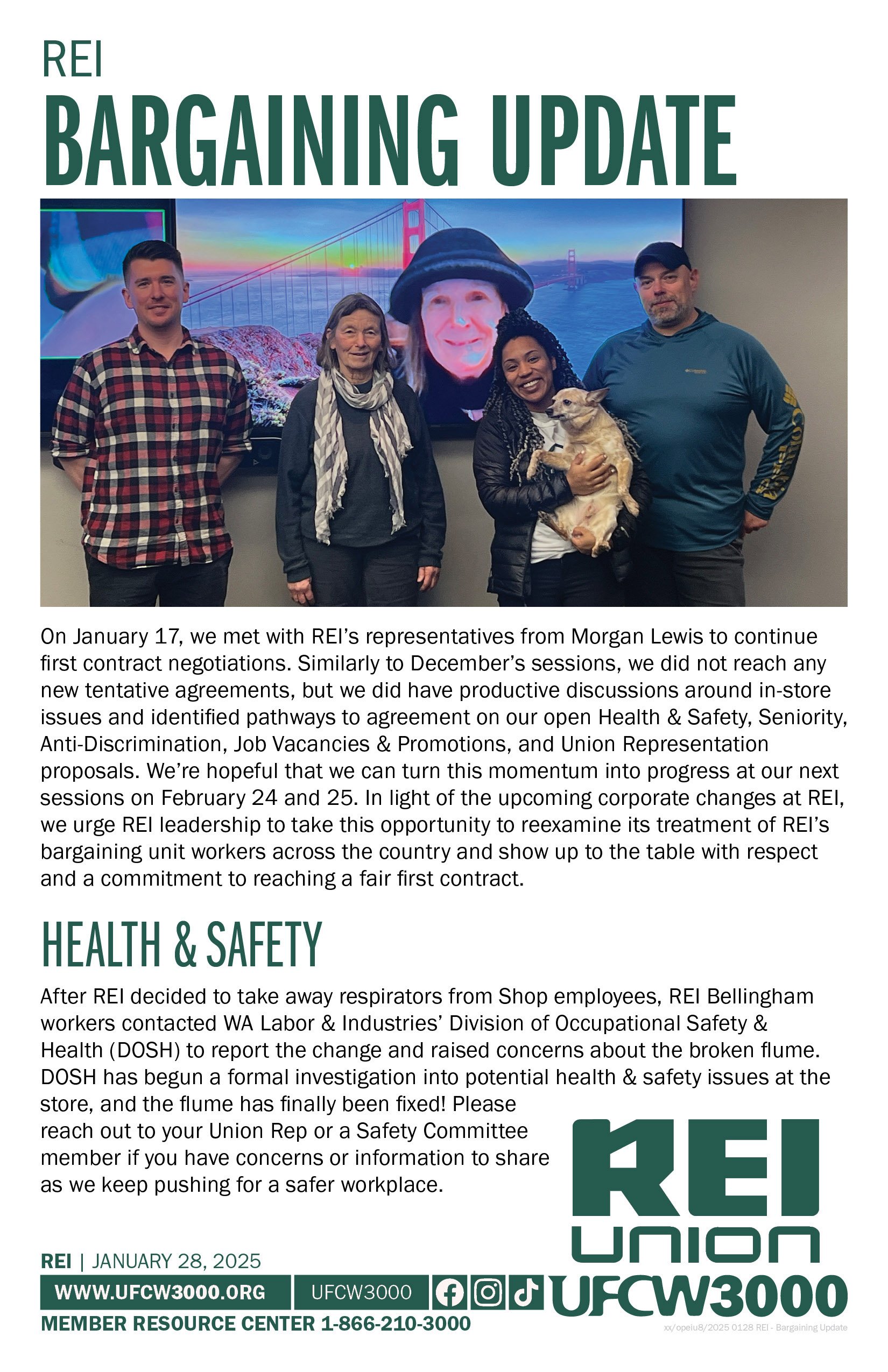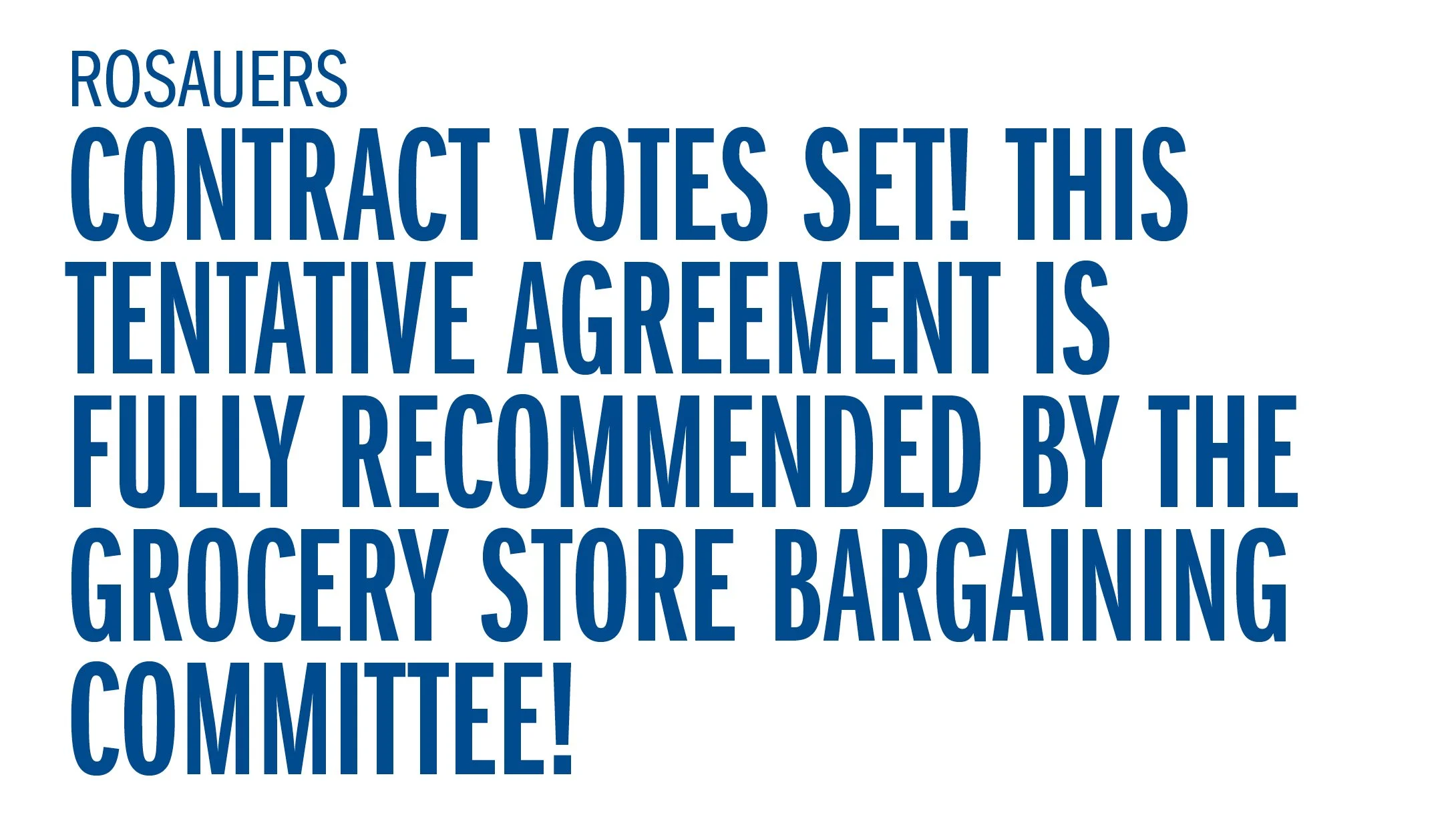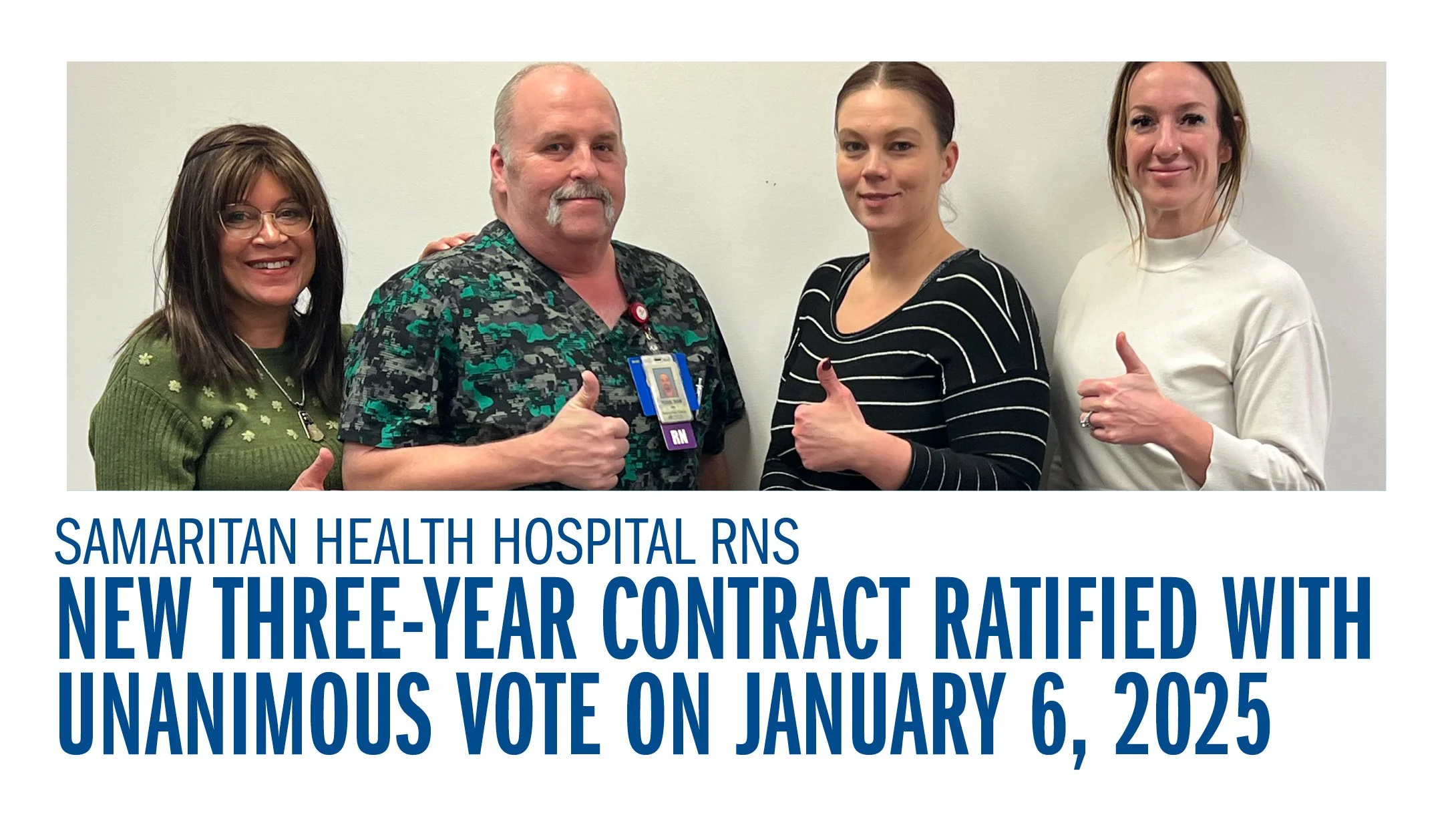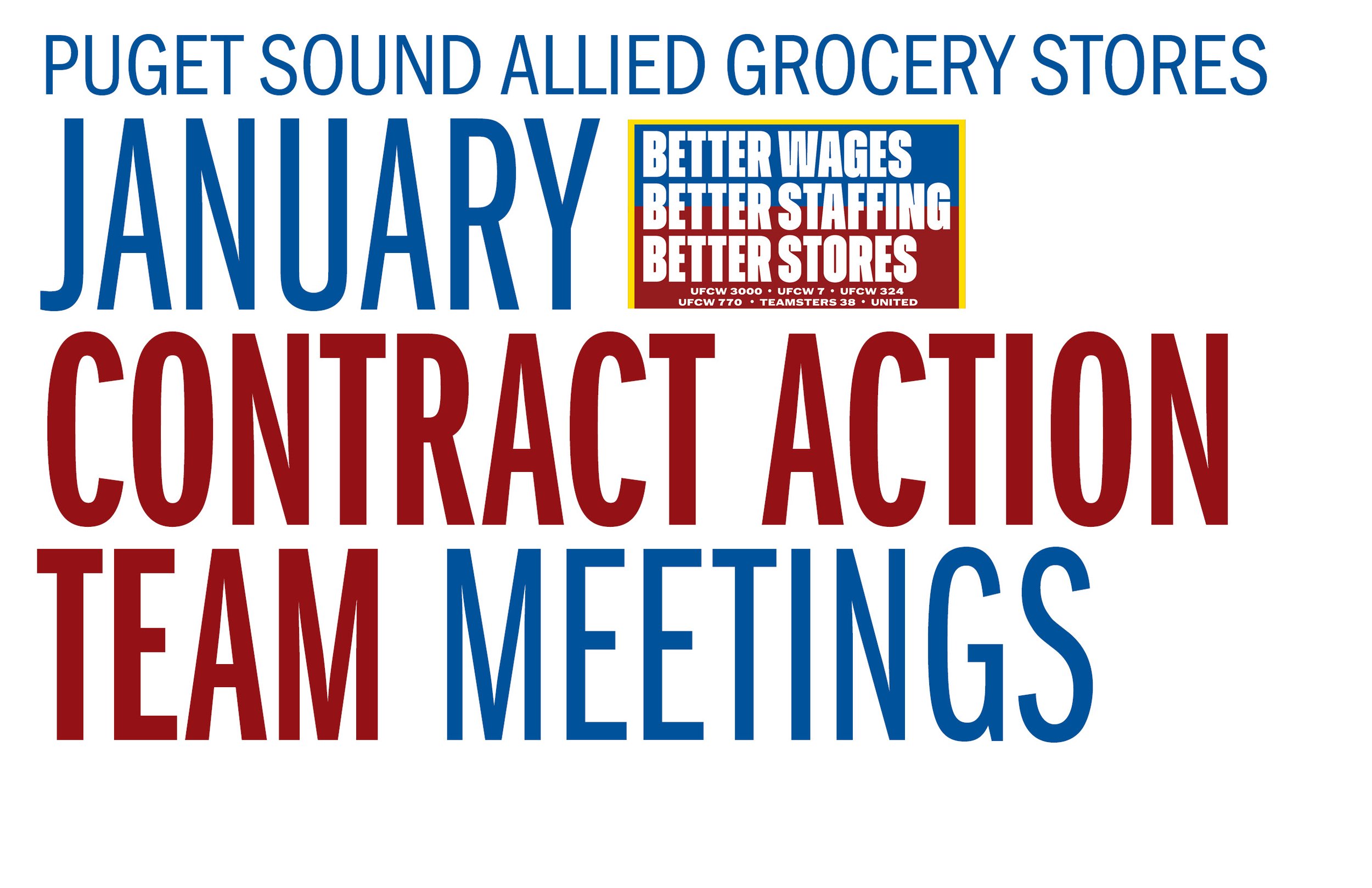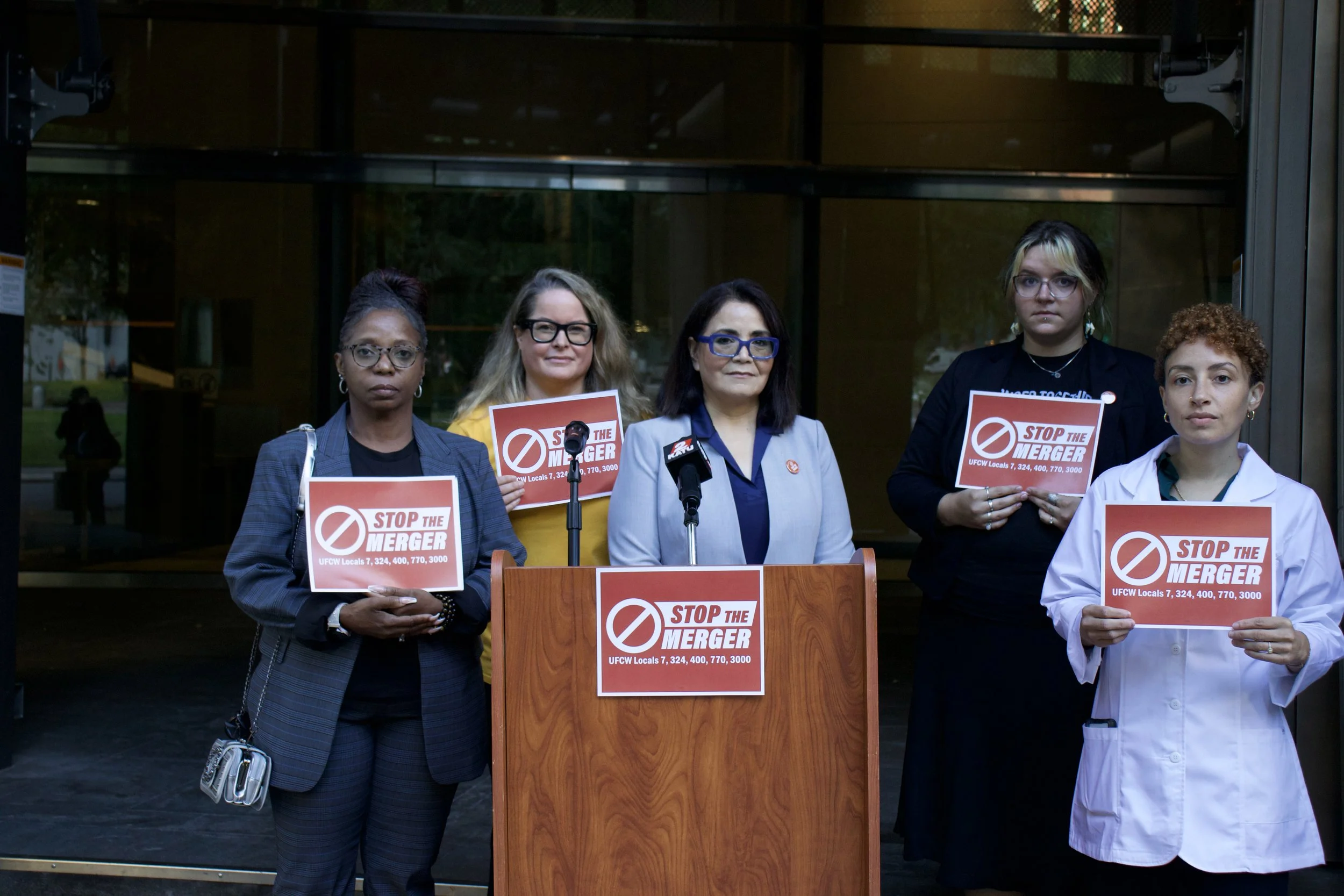UFCW Local Unions from Stop the Merger Coalition Oppose Kroger’s Wall Street Giveaway
/Press Release
UFCW Locals 7, 324, 770, 1564 and 3000
For Immediate Release: December 13, 2024 - 9 AM ET/6 AM PT
Contact: Tom Geiger, UFCW 3000, 206-604-3421
UFCW Local Unions from Stop the Merger Coalition Oppose Kroger’s Wall Street Giveaway, Call On Board of Directors to Immediately Replace CEO Rodney McMullen
Seattle, WA - A day after failing in its bid to merge with Albertsons and dominate the traditional supermarket industry, Kroger abruptly announced a massive giveaway to shareholders—a $7.5 billion stock buyback, $5 billion of which is slated to be paid out on an accelerated timetable. The massive shareholder payout towers above the commitments the company had promised to reduce prices for consumers and to invest in wages during the recent merger fight. Flip-flopping in less than a day’s time from a strategy of aggressive growth through Albertson’s acquisition on Tuesday to one of dramatic downsizing through shedding $7.5 billion on Wednesday should be seen for what it seems to be - an attempt to buy shareholders’ mercy through a short-term boost to the stock price in order to save CEO Rodney McMullen’s job.
“At a time when our stores need significant investments in staffing, repairs and remodels and our customers need relief from high prices, it is outrageous that Rodney McMullen would try to distract attention from his multiple failures as CEO by announcing a massive one-time giveaway to shareholders,” said Kim Cordova, President of UFCW Local 7 in Colorado and Wyoming.
During the recent three trials to block the merger, Kroger officials repeatedly expressed concern that rising competition from Amazon, Walmart and other nontraditional retailers represented an “existential” threat to Kroger’s market share. Within hours of that merger’s failure, it appears that Mr. McMullen’s first substantive action—apart from deciding to sue Albertsons—is to fleece $7.5 billion from the company’s treasury instead of making investments that would build market share. This $7.5 billion is on top the nearly $1 billion the Company already wasted on the failed merger. Apparently, in McMullen’s view, the threats to Kroger’s survival are not so great that the company needs these resources.
What could a competent CEO do with $7.5 billion? At the most basic level, these funds could be used to: 1) invest in lower prices for consumers, making Kroger more price competitive; 2) invest in higher wages and more staffing to reduce turnover; 3) remedy chronically empty shelves; and, 4) provide better customer service. The $7.5 billion in share buybacks announced Wednesday are approximately 10 times the value of the promised investments in price reductions the company had said it would make if the merger were approved. The Company made a similar billion-dollar commitment to invest in wages. Workers know all too well just how badly needed these additional wages and hours are for the stores’ operations, and how they would allow the company to grow its market share.
What else could a competent executive do to grow market share? They could do what Amazon, Walmart, Costco and Trader Joe’s have done: build new stores. Those other retailers have consistently grown their grocery store count each year over the past decade, but there are fewer Kroger stores today than there were in January of 2016. How many new Kroger stores could $7.5 billion buy? Based on an average pre-tax cost of $35 million per store, Kroger could build 280 new combination stores (such as Ralphs, King Soopers or QFC) each with an average square footage of 71,000 sq ft, for a total of approximately 20 million new square feet—the equivalent of over 1,300 Trader Joe’s stores, about 2.2 times as many Trader Joe’s as currently exist.
What could $7.5 billion buy?
New stores: 280
Store remodels: 3,268*
Discounts per loyal household: $158.13
New FTEs: 125,691
New FTEs per store: 46
New FTE's per store for 3 yrs: 15.4
* This is actually larger than the total number of stores currently operated by Kroger.
“These stores are part of our community—millions of consumers shop there for their families' food, and hundreds of thousands of union members work there. These billions could be used to improve our food supply, reduce prices, reduce food deserts and more,” said Kathy Finn, President of UFCW 770 in Southern California. “That money is not a personal piggy bank that Rodney McMullen can raid in order to save his job.”
“As the president of a local union that represents 11,700 Kroger workers, I don’t take lightly the decision to call for the replacement of the company’s CEO, but Rodney McMullen has mismanaged this company so badly there is no other way forward,” said Faye Guenther, President of UFCW 3000 in Washington State. “It was under his leadership that the company decided to attack its union members by cutting staffing by double-digit percentages, it was under his leadership that the decision was made to invest in the automated Ocado warehouse boondoggle, and it was under his leadership that both companies wasted the last two years and nearly $1 billion pursuing a doomed merger. It’s past time for him to go.”



